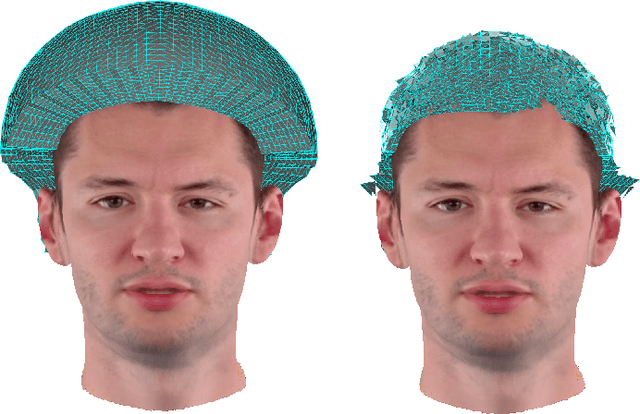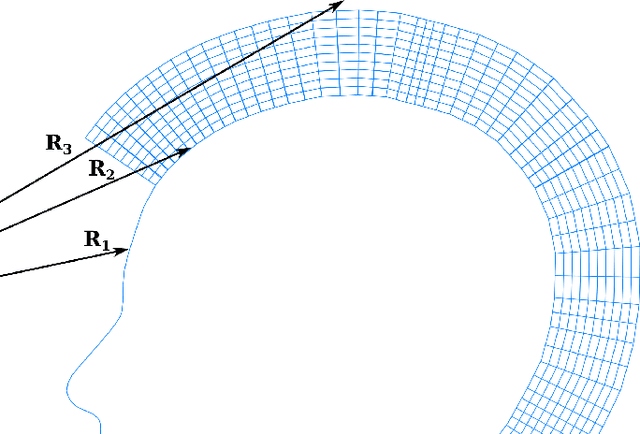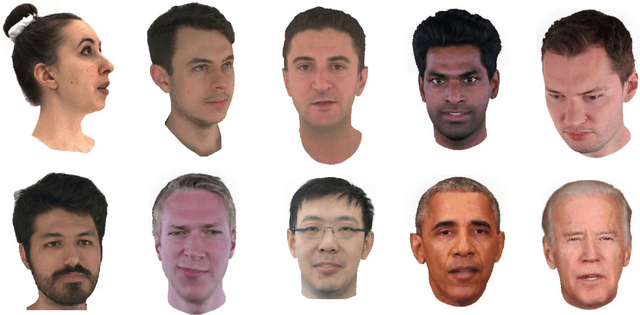Kevin Ferreira
PrismAvatar: Real-time animated 3D neural head avatars on edge devices
Feb 10, 2025



Abstract:We present PrismAvatar: a 3D head avatar model which is designed specifically to enable real-time animation and rendering on resource-constrained edge devices, while still enjoying the benefits of neural volumetric rendering at training time. By integrating a rigged prism lattice with a 3D morphable head model, we use a hybrid rendering model to simultaneously reconstruct a mesh-based head and a deformable NeRF model for regions not represented by the 3DMM. We then distill the deformable NeRF into a rigged mesh and neural textures, which can be animated and rendered efficiently within the constraints of the traditional triangle rendering pipeline. In addition to running at 60 fps with low memory usage on mobile devices, we find that our trained models have comparable quality to state-of-the-art 3D avatar models on desktop devices.
A Diffusion-based Method for Multi-turn Compositional Image Generation
Apr 05, 2023Abstract:Multi-turn compositional image generation (M-CIG) is a challenging task that aims to iteratively manipulate a reference image given a modification text. While most of the existing methods for M-CIG are based on generative adversarial networks (GANs), recent advances in image generation have demonstrated the superiority of diffusion models over GANs. In this paper, we propose a diffusion-based method for M-CIG named conditional denoising diffusion with image compositional matching (CDD-ICM). We leverage CLIP as the backbone of image and text encoders, and incorporate a gated fusion mechanism, originally proposed for question answering, to compositionally fuse the reference image and the modification text at each turn of M-CIG. We introduce a conditioning scheme to generate the target image based on the fusion results. To prioritize the semantic quality of the generated target image, we learn an auxiliary image compositional match (ICM) objective, along with the conditional denoising diffusion (CDD) objective in a multi-task learning framework. Additionally, we also perform ICM guidance and classifier-free guidance to improve performance. Experimental results show that CDD-ICM achieves state-of-the-art results on two benchmark datasets for M-CIG, i.e., CoDraw and i-CLEVR.
 Add to Chrome
Add to Chrome Add to Firefox
Add to Firefox Add to Edge
Add to Edge